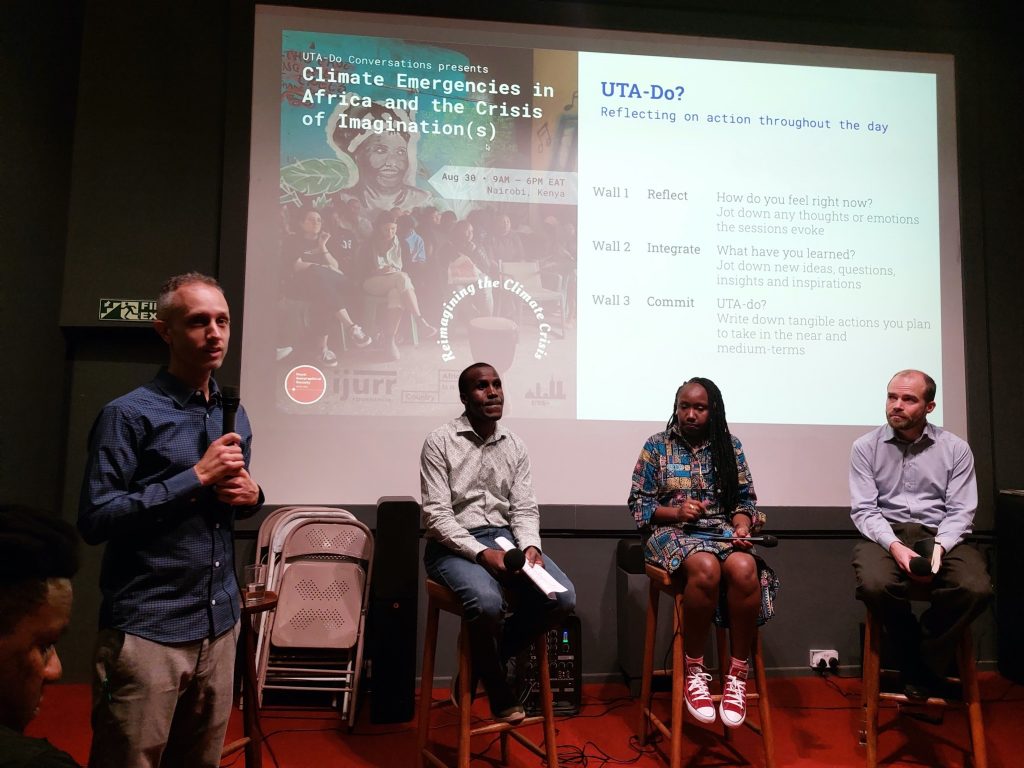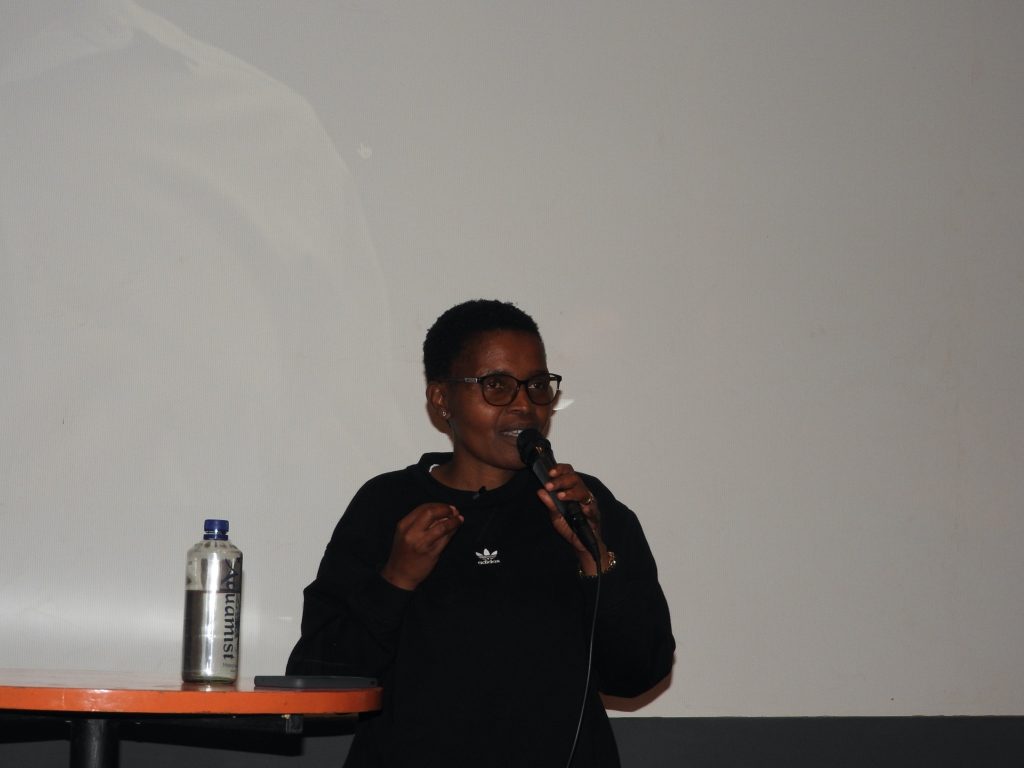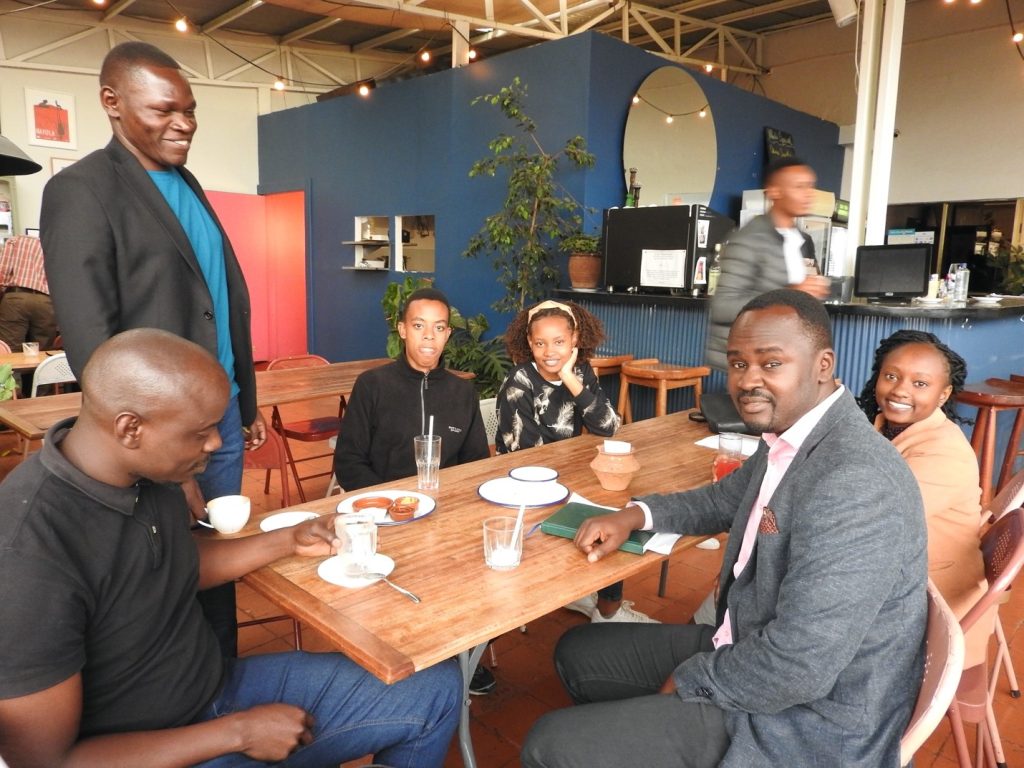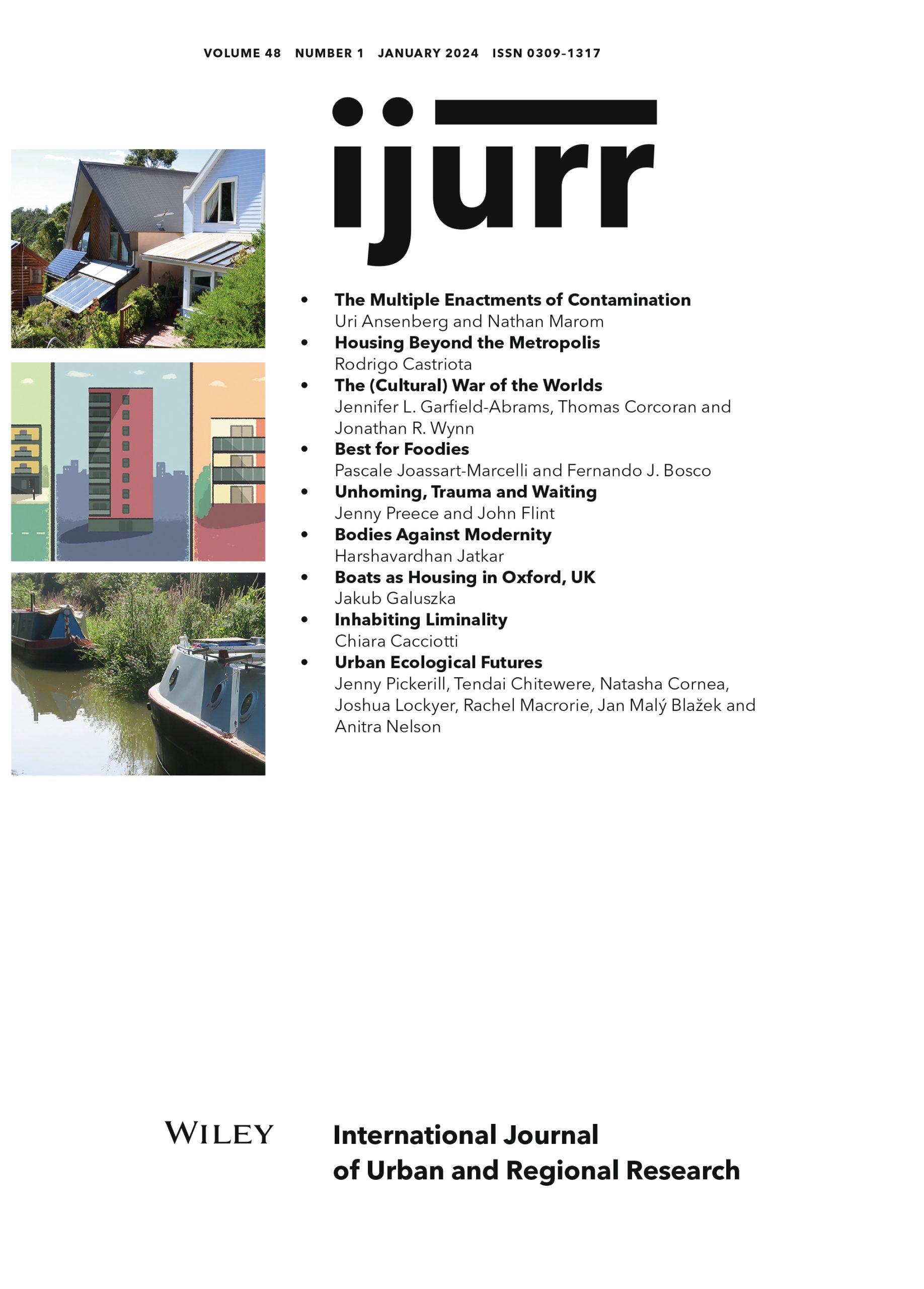How do we go beyond mainstream narratives about climate change and think about this crisis from our own experiences? What can we do as we live with the reality that Africa contributes to less than 4% of global greenhouse gas emissions, but is suffering the most inordinate effects of climate change? These were the overarching questions that oriented our Climate Emergencies in Africa and the Crisis of Imagination(s) event that took place on August 30, 2023, and which was generously supported by the IJURR Foundation.
On this day, thirty-five participants from across academia, civil society and policy in Kenya and beyond came together, at the Unseen Cinema in Nairobi, for this convening. To facilitate a space for co-learning and sharing, and to make sure we could do this from a common foundation, our initial session, facilitated by Njenga Muchekehu of C40 cities, spoke to the following question: Africa’s Climate Justice Emergency: What are we facing? In this session, Njenga reflected on, among other concerns, how prescriptive solutions from the West need to be avoided as we grapple with climate emergencies, since what, for example, a “green job” can mean in Kenya or elsewhere in the region, needs to be anchored in the specificities of place.
Following this first panel, Murefu Barasa, Ruth Nyambura and Edward Borgstein were brought together for a session titled: Subtext: What do mitigation, adaptation and resilience actually mean? (and for whom, when, where and how?). The goal of this session was to really interrogate the racialized and classed dimensions of discourses about resilience, mitigation and adaptation, as well as other similar phrases, which are popular in formal cross-sectoral environmental policy discussions. Adding to this, all panelists agreed that while colonial hierarchies are implicit in intergovernmental climate action oriented around “green transitions,” for instance, we can all learn from each other’s actions, and that every moment or forum, however futile it may seem (for example, COP forums or, even, the Africa Climate Summit that took place a week after our convening), is a site of struggle.
 Photo: Panelists at the second session, W. Kimari, August 30 2023.
Photo: Panelists at the second session, W. Kimari, August 30 2023.
Our RGS International Hub session followed lunch, and, here, together with scholars in London and India, Lauren Hermanus from the African Centre for Cities (ACC) spoke from our workshop in Nairobi about the “neurotic dance” between optimism and despair that characterizes the work of those who are tethered to bureaucratic institutions (be it government or academia) but yet are struggling to do their bit to make sure those at the front line of climate change disasters are heard; that their imaginations for a different world are front and center. The call from all Hub centers, included in this session, made similar appeals; that the stories of climate change be told by, for instance, displaced fisher folk, and that we anchor our approaches to the climate crisis in love and vulnerability.
Our final session of the day was a visual demonstration of the first cut of a documentary called After Oil, which is being made by Africa is A Country (AIAC) – the popular left forum that focuses on events and analysis from the African continent. This film follows the lives of an array of people in South Africa, Western Sahara and Kenya, who are navigating the many effects of unequal energy economies and crises in their homelands. Nonhle Mbuthuma, an activist from South Africa fighting the displacement of her community by mining enterprises, was on hand to talk about her work that was featured in the documentary, and the many local struggles she is part of to ensure actual people-centered development where she lives and beyond.
 Photo: Nonhle Mbuthuma taken at the event, W. Kimari, August 30 2023.
Photo: Nonhle Mbuthuma taken at the event, W. Kimari, August 30 2023.
Throughout the day, within and between sessions, participants were able to exchange ideas and learn about the powerful work many of them are doing to repair and protect their communities in a context of climate emergencies. We hope, too, that the collective brainstorming of ways to join forces towards shaping climate emergency imaginations and praxes is continuing beyond this workshop.
The questions that prompted this convening still remain. These are: How do we go beyond mainstream narratives about climate change and think about this crisis from our own experiences? What can we do as we live with the reality that Africa contributes to less than 4% of global greenhouse gas emissions, but is suffering the most inordinate effects of climate change? Because these questions endure, we are very grateful for the support that the IJURR Foundation gave us, and that helped create one more intentional collective time-space working to respond to these critical inquiries from Kenya.
 Photo: A group of event participants, W. Kimari, August 30 2023.
Photo: A group of event participants, W. Kimari, August 30 2023.
By Wangui Kimari
Dr Wangui Kimari is an urban anthropologist based in Nairobi, Kenya. Wangui is a Junior Research Fellow at the Institute for Humanities in Africa (HUMA), University of Cape Town, and participatory action research coordinator for the Mathare Social Justice Centre (MSJC), a community-based organization in Mathare, Kenya.
